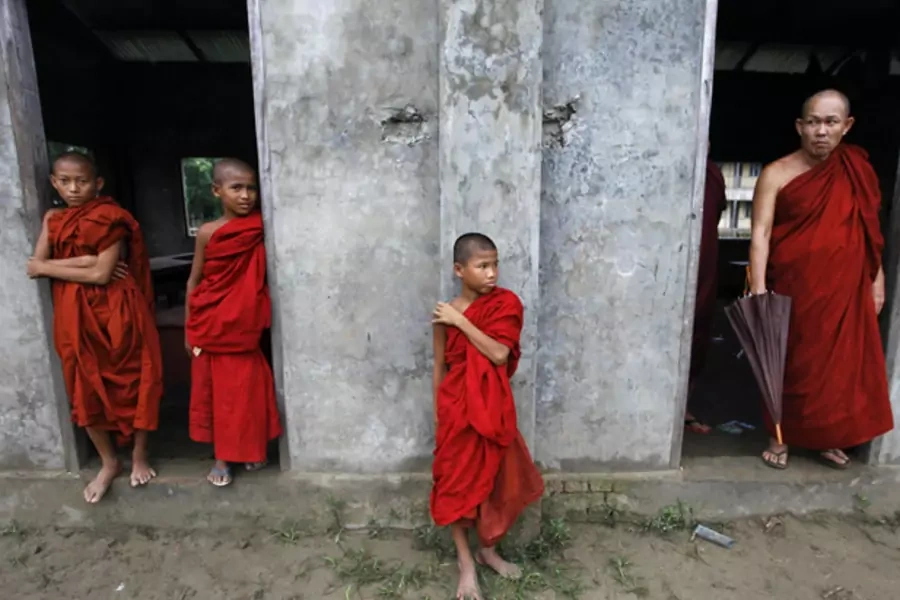Myanmar’s Ethnic Violence: Is the Cauldron Going to Explode?

More on:
The past weeks have seen a series of brutal episodes of ethnic violence in central Myanmar, between Buddhists and Muslims, as groups of Buddhists have attacked Muslim homes and villages and then murdered people who fled the homes in cold blood, according to multiple news reports. Many reports suggest that local groups of monks and some members of the security forces have been involved in instigating the violence.
This year may well prove to be the critical year for Myanmar’s survival as a multi-ethnic state. Anti-Muslim violence has now spread beyond confined areas of Rakhine State, and could easily flare across the country; Myanmar has a history of attacks against minority groups, such as ethnic Indians and ethnic Chinese. The security forces are divided, unable to take the harsh anti-riot tactics of the past, but totally unskilled in nonviolent crowd control.
Worst of all, when it comes to creating a more devolved, federal structure of government, there are almost no leading Burman politicians willing to aggressively enunciate this view, as Aung San Suu Kyi’s father, independence leader Aung San, once did. In addition, while ethnic minority areas are the most in need of aid and investment in physical infrastructure, players in Naypyidaw are already competing to channel new foreign aid and investment to Burman regions, which though needy are not as needy of roads, electricity, and other necessities.
Instead, on trips to Myanmar I have found that there is minimal support among ethnic Burman leaders for a truly federal state, with the kind of devolution of economic and political power that Indonesia has attempted during its period of democratization. In addition, nearly all of the senior officials in the president’s office, the National League for Democracy (NLD), and civil society remain focused on national-level politics, and particularly on the upcoming 2015 national elections, which are seen as the polls that could consolidate Burma’s democracy. However, there is almost no brainpower being spent on developing ideas for devolution, for local level elections, and for state executive elections. Within the top ranks of the NLD, Suu Kyi’s party, nearly all senior leaders do not support significant federalism, despite the fact that they have few other concrete proposals for how to handle Burma’s vast ethnic diversity and ethnic minorities’ deep distrust of the national government, due to years of repressive centralized rule. Although Suu Kyi herself has publicly advocated for a new federal model, and has paid homage to her father’s vision—which was enunciated at the Panglong Conference and Agreement in 1947, and though she is probably the only Burman trusted enough by ethnic minority leaders to preside over a new federalism, she has not made it the centerpiece of her politics since joining parliament last year. She, too, has focused on the 2015 national elections almost exclusively. Given that she remains relatively weak politically, she also has been wary of taking on tough ethnic minority issues that could cost her Burman support before she and the NLD actually control parliament. In addition, even at the highest levels of the NLD many senior leaders exhibit worrying racism and hostility toward numerous ethnic minority groups. Not a recipe for cooling violence any time soon.
More on:
 Online Store
Online Store